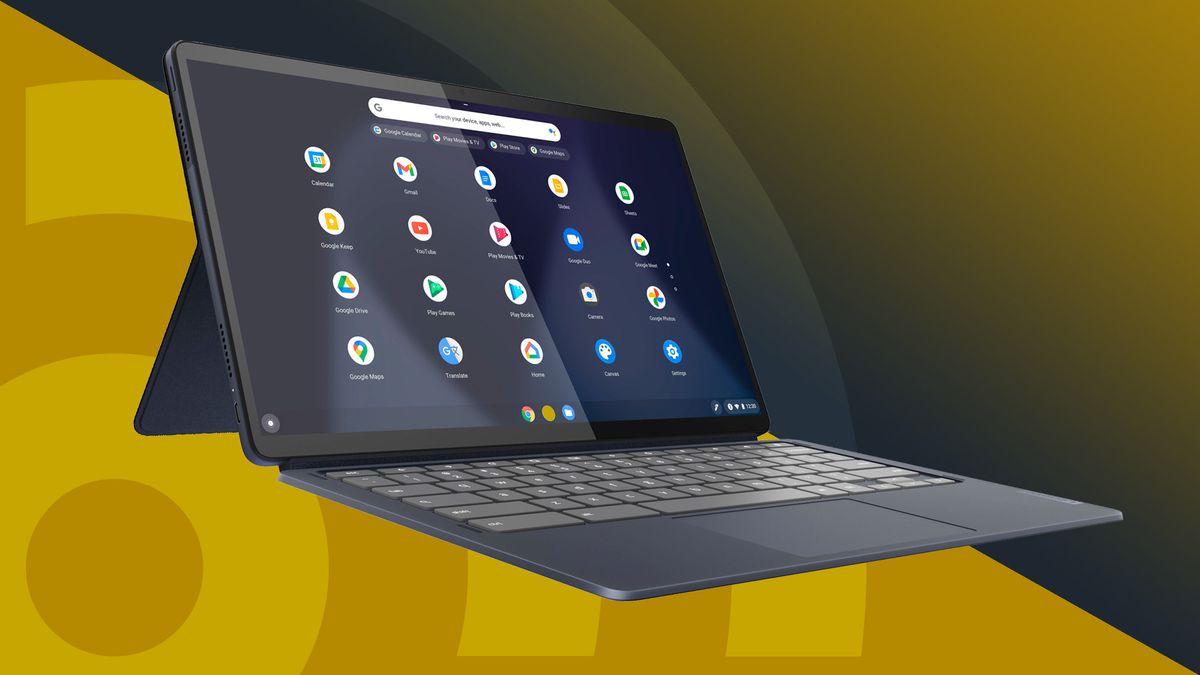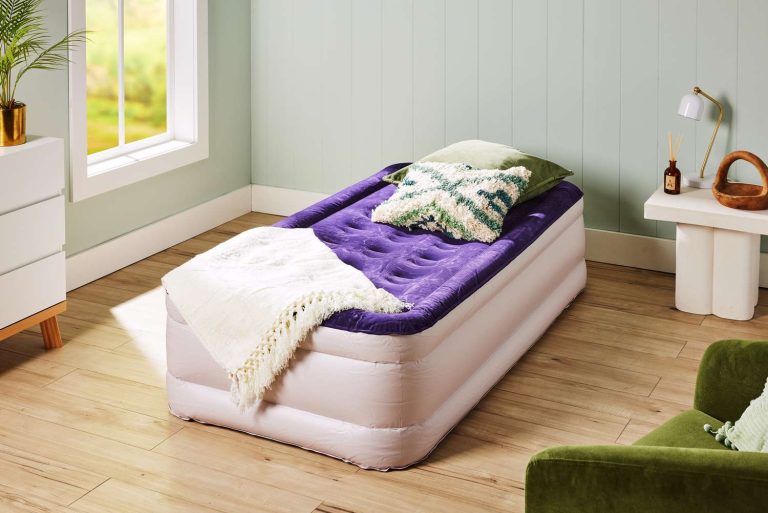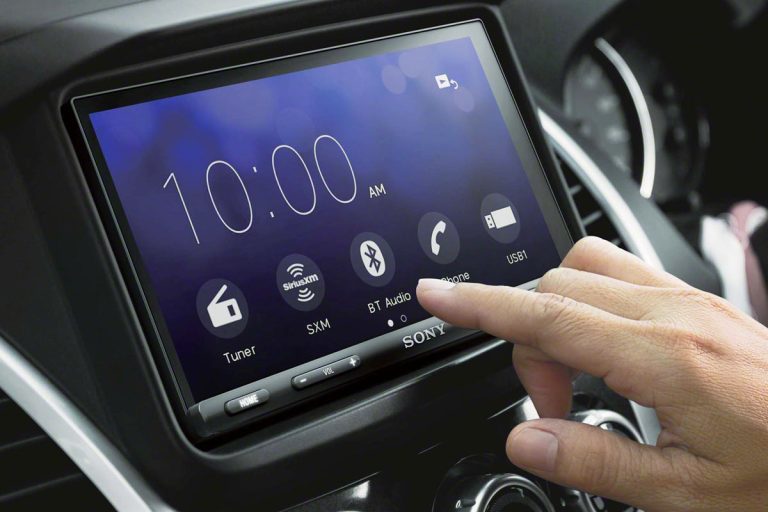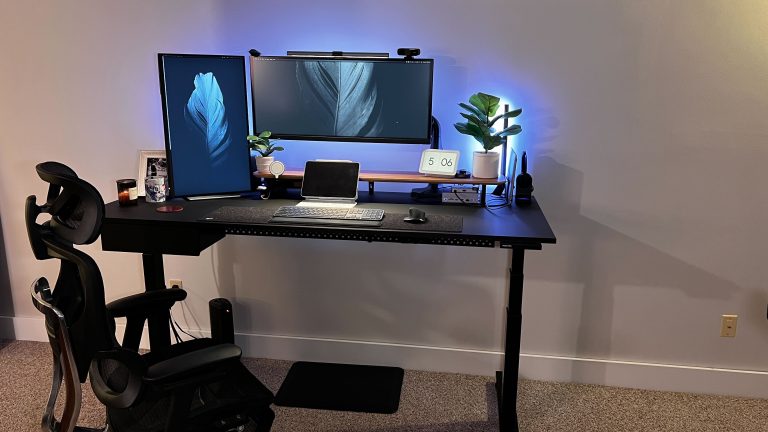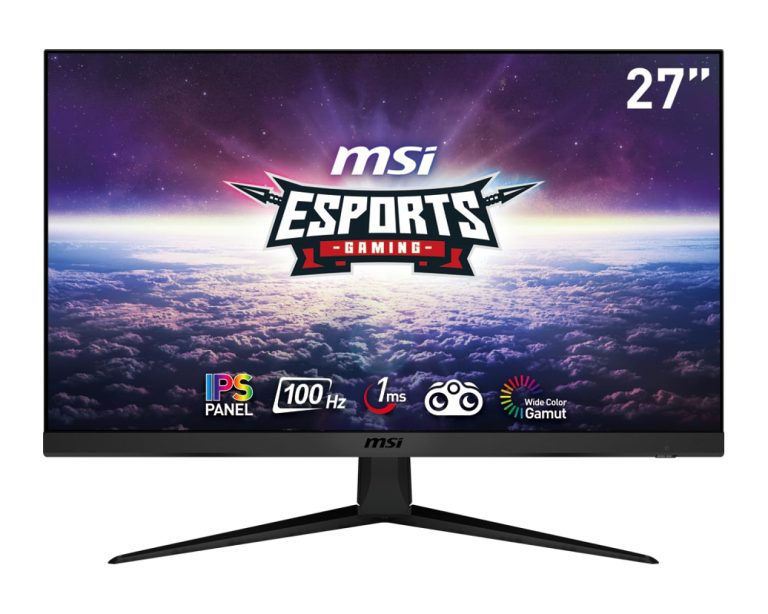9 Best Computers for College: Top Picks for Students in 2024
Choosing the right computer for college can feel overwhelming with so many options available. Whether you need it for note-taking, research, or creative projects, the perfect device can make your academic life smoother and more efficient. But how do you decide which one suits your needs best?
We’ve done the legwork to narrow down the top 9 computers that cater to a variety of student requirements. From lightweight laptops for easy portability to powerful machines capable of handling demanding software, there’s something for everyone. Read on to find the ideal computer that will help you excel in your college journey.
Explore the Top 9 Best Computers for College
Choosing the right computer for college can be daunting. To make this task easier, we’ve curated a list that covers a variety of needs.
- Performance: Ensuring your computer can handle multitasking efficiently is crucial. Look for at least 8GB of RAM and a modern processor like Intel i5 or Ryzen 5.
- Portability: You’ll want a lightweight device if you’re moving around campus frequently. Aim for laptops under 4 pounds with long battery life.
- Storage: Fast SSD storage is essential for quick boot times and smooth performance. A minimum of 256GB SSD is recommended.
- Durability: College life can be rough on electronics. Choose a computer with a sturdy build and good warranty coverage.
- Price: Budget is always a consideration. Ensure that it balances cost with the necessary features for your studies.
- Software Compatibility: Ensure that your preferred machine supports the software you’ll be using, from basic word processing to specialized applications like CAD or Adobe Creative Suite.
By keeping these criteria in mind, you can find the perfect computer to support your college needs.
1. Best Overall: Apple MacBook Pro
The Apple MacBook Pro stands out as the top choice for college students. Its powerful performance and sleek design make it a versatile tool for any academic task.
Key Features
- Performance: Equipped with Apple’s M1 chip, the MacBook Pro delivers exceptional speed and efficiency. You’ll experience smooth multitasking whether you’re running software or browsing multiple tabs.
- Display: The 13.3-inch Retina display offers vibrant colors and sharp details, perfect for tasks ranging from note-taking to multimedia projects.
- Battery Life: With up to 20 hours of battery life, you can rely on it to last through long study sessions and lectures without needing a recharge.
- Portability: Weighing just 3.0 pounds, it’s lightweight and easy to carry, making it ideal for commuting between classes and the library.
- Storage Options: Available with up to 2TB of SSD storage, you’ll have ample space for all your documents, software, and media files.
- Operating System: MacOS is user-friendly and integrates well with other Apple devices, enhancing your productivity with features like Handoff and Continuity.
- Pros:
- Powerful Performance: The M1 chip ensures seamless operation and speed.
- Exceptional Display: Retina display provides excellent visuals for any task.
- Long Battery Life: Up to 20 hours of battery life means less frequent charging.
- Lightweight Design: Easy to carry, perfect for students on the move.
- High Storage Capacity: Plenty of space for your needs.
- MacOS Integration: Works seamlessly with other Apple devices.
- Cons:
- Price: Starting at around $1,299, it’s a significant investment.
- Limited Ports: Only two Thunderbolt 3 ports might require additional adapters.
- Software Compatibility: Some specialized programs may be less compatible with macOS compared to Windows.
2. Best for Engineering Students: Dell XPS 15
The Dell XPS 15 is a powerhouse that’s tailor-made for engineering students. It combines premium build quality with performance to handle demanding tasks.
Key Features
- Powerful Processor: Equipped with Intel’s latest processors, ensuring smooth multitasking and high performance.
- Dedicated Graphics: Includes NVIDIA GTX 1650 Ti, perfect for 3D modeling and simulations.
- Stunning Display: 15.6-inch 4K UHD display offers exceptional clarity and color accuracy, ideal for detailed engineering designs.
- Ample Storage: Up to 1TB SSD, providing lightning-fast storage and ample space for large project files.
- Robust Build: Durable aluminum chassis and carbon-fiber palm rest, combining strength with lightweight design.
- Battery Life: Lasts up to 12 hours, allowing you to work all day without searching for an outlet.
- Pros:
- Exceptional performance with powerful processors and dedicated graphics.
- High-resolution display with accurate color representation.
- High storage capacity, eliminating the need for external drives.
- Top-notch build quality, ensuring durability and sleek design.
- Long battery life, keeping you untethered for extended periods.
- Cons:
- Premium price may be higher than other models.
- Limited port selection could require adapters for peripherals.
- Heavier than some ultra-portables, potentially less convenient for daily transport.
The Dell XPS 15 stands out for its balance of high performance and robust features, making it an excellent choice for any engineering student.
3. Best Budget-Friendly: Acer Aspire 5
The Acer Aspire 5 offers an impressive array of features for students without breaking the bank.
Key Features
- Processor: Equipped with an Intel Core i5, the Acer Aspire 5 ensures smooth multitasking.
- RAM and Storage: It comes with 8GB of RAM and a 256GB SSD, providing ample space and fast performance.
- Display: A 15.6-inch full HD display offers crisp and clear visuals, ideal for both work and entertainment.
- Battery Life: Delivers up to 7.5 hours of battery life, sufficient for a full day of classes or study sessions.
- Ports: Includes USB Type-C, HDMI, and USB 3.1 ports, ensuring connectivity with various devices.
- Keyboard and Build: Features a backlit keyboard and a sleek, lightweight design, making it portable and practical.
Pros and Cons
-
Pros:
- Affordable: Great performance at a budget-friendly price.
- Performance: Strong processor and adequate RAM handle most tasks efficiently.
- Display Quality: Full HD display enhances viewing experience for studying and streaming.
- Portability: Lightweight design makes it easy to carry around campus.
- Battery Life: Long-lasting battery is perfect for extended use.
- Build Quality: Uses plastic materials, which may not feel as premium.
- Storage: 256GB SSD might be limited for storing large files without external drives.
- Graphics: Integrated graphics are not suited for intensive gaming or graphic design.
The Acer Aspire 5 strikes a commendable balance between cost and performance, making it an excellent choice for budget-conscious students.
4. Best for Art and Design Students: Microsoft Surface Laptop 4
The Microsoft Surface Laptop 4 is perfect for art and design students seeking a powerful, yet portable device. It’s designed to handle creative applications with ease.
Key Features
- High-Resolution Display: The 13.5 or 15-inch PixelSense touchscreen offers sharp, vibrant visuals at 2256 x 1504 resolution, perfect for detailed design work.
- Powerful Performance: Equipped with up to an 11th Gen Intel Core i7 or AMD Ryzen 7 processor and up to 32GB RAM, it can handle demanding creative software smoothly.
- Stylus Support: Includes Surface Pen support, allowing you to sketch and annotate directly on the screen, mimicking a traditional drawing experience.
- Battery Life: Provides up to 19 hours of battery life, ensuring it lasts through long project sessions and classes without needing a recharge.
- Build Quality: Combines a sleek aluminum design with a lightweight build, making it both durable and portable.
Pros and Cons
-
Pros:
- High-Resolution Display: Offers excellent color accuracy and clarity, crucial for design tasks.
- Strong Performance: Handles resource-intensive programs like Adobe Creative Suite effortlessly.
- Stylus Compatibility: Enhances creativity by allowing direct interaction with design software.
- Extended Battery Life: Lasts all day, reducing the need for constant charging.
- Portability: Lightweight and slim, easy to carry around campus.
- Premium Price: Higher cost compared to some other laptops with similar specs.
- Limited Ports: Lacks a variety of ports, which might necessitate additional adapters.
- Repairability: Not the easiest to repair, leading to potential higher costs for maintenance.
5. Best for Computer Science Students: Lenovo ThinkPad X1 Carbon
The Lenovo ThinkPad X1 Carbon stands out as an excellent choice for computer science students due to its robust performance and reliable build.
Key Features
- Powerful Processor: Equipped with up to Intel Core i7, providing seamless multitasking and efficient coding.
- Lightweight Design: Weighs around 2.4 pounds, making it highly portable for on-the-go students.
- High-Resolution Display: Features a 14-inch display with options for 4K, enhancing visibility and reducing eye strain.
- Durable Construction: Passed multiple MIL-STD 810G tests, ensuring it withstands daily wear and tear.
- Ample Storage: Offers up to 1TB SSD, giving plenty of room for large files, projects, and applications.
- Long Battery Life: Lasts up to 15 hours, ensuring a full day of classes and study sessions without needing a recharge.
Pros and Cons
-
Pros:
- Exceptional Performance: Handles complex coding tasks and running multiple applications with ease.
- Lightweight Build: Easy to carry between classes and study sessions.
- Superior Display: Crisp, vibrant visuals with 4K option for intensive graphical tasks.
- Durability: Built to last, surviving knocks and drops from daily use.
- Extended Battery Life: Supports all-day use without frequent charging.
- Premium Price: Higher cost can be a barrier for budget-conscious students.
- Limited Ports: Fewer connectivity options might require additional dongles.
- Non-upgradable RAM: Fixed RAM limits future upgrade possibilities.
The Lenovo ThinkPad X1 Carbon is tailored for computer science students, offering performance, portability, and durability needed for rigorous academic demands.
6. Best Portable: ASUS ZenBook 13
When you need a lightweight yet powerful laptop for college, the ASUS ZenBook 13 stands out. It’s perfect for students always on the go.
Key Features
- Weight and Dimensions: The ASUS ZenBook 13 weighs just 2.5 pounds, making it incredibly portable.
- Display: Features a stunning 13.3-inch OLED FHD display that delivers vibrant colors and deep blacks.
- Battery Life: Boasts up to 13 hours of battery life, perfect for a full day’s work or study sessions.
- Processor: Equipped with the Intel Core i7-1165G7 processor, ensuring smooth performance for multitasking.
- Storage and Memory: Comes with 512GB SSD storage and 16GB RAM, allowing you to run multiple applications efficiently.
- Ports: Includes HDMI, USB-C, USB-A, and MicroSD card reader, offering versatile connectivity options.
- Pros:
- Portability: Extremely lightweight and slim design make it easy to carry in a backpack.
- Display: Brilliant OLED display enhances visual experience, ideal for streaming and creative work.
- Battery: Long-lasting battery life reduces frequent charging needs.
- Performance: High-performance processor and ample RAM boost productivity.
- Connectivity: Multiple ports increase compatibility with various devices and accessories.
- Cons:
- Sound Quality: Speakers might not be as powerful, which could be a drawback for media-heavy tasks.
- Webcam: Average webcam quality, which may not be suitable for high-quality video calls.
- Price: Slightly more expensive compared to some other ultrabooks in the market.
The ASUS ZenBook 13 is an excellent choice if portability, performance, and display quality are crucial for your college needs.
7. Best 2-in-1 Laptop: HP Spectre x360
Key Features
The HP Spectre x360 stands out with its versatile 2-in-1 design, allowing you to switch easily between a laptop and a tablet. It features a stunning 13.3-inch 4K UHD touchscreen display, perfect for crisp visuals and detailed work. Powered by an Intel Core i7-1165G7 processor, it comes with 16GB RAM and up to 1TB SSD storage for seamless multitasking and ample storage space. The long battery life of up to 15 hours ensures you can work throughout the day without needing to recharge. It also offers Thunderbolt 4, USB-C, USB-A ports, and a microSD card reader for versatile connectivity.
Pros and Cons
- Versatile 2-in-1 design for flexibility.
- Gorgeous 4K UHD touchscreen display.
- Excellent performance with Intel Core i7 and 16GB RAM.
- Long battery life of up to 15 hours.
- Multiple connectivity options with Thunderbolt 4.
- High price point not budget-friendly.
- Slightly heavier than other ultraportables at 2.87 pounds.
- Thermal performance can be inconsistent.
8. Best for Multimedia Projects: Apple MacBook Air
Apple’s MacBook Air is the go-to laptop for students tackling multimedia projects. Its sleek design, impressive performance, and superior display make it a top choice.
Key Features
- M1 Chip: Apple’s M1 chip provides incredible speed and power efficiency, handling demanding tasks smoothly.
- Retina Display: A 13.3-inch Retina display delivers stunning visuals, perfect for photo and video editing.
- Extended Battery Life: Up to 18 hours of battery life ensures you can work on your projects without frequent recharging.
- Compact and Lightweight: At just 2.8 pounds, it’s highly portable, ideal for carrying between classes.
- SSD Storage: Starting with 256GB SSD storage, you get fast access to files and applications.
Pros and Cons
- Performance: The M1 chip enhances multimedia processing and multitasking.
- Battery Life: Long battery life supports extended periods of creative work.
- Display Quality: Retina display offers vibrant colors and sharp details.
- Portability: Lightweight design is convenient for on-the-go use.
- Port Limitations: Only two Thunderbolt ports may require additional adapters.
- Price: Higher cost compared to other laptops.
- Software Compatibility: Some advanced software might need time to be fully optimized for the M1 chip.
9. Best Chromebook: Google Pixelbook Go
The Google Pixelbook Go stands out as an excellent choice for students looking for a Chromebook. It offers a seamless mix of portability and performance perfect for college life.
Key Features
The Pixelbook Go boasts a 13.3-inch Full HD touchscreen display, an 8th Gen Intel Core m3, i5, or i7 processor, and up to 16GB of RAM. It runs Chrome OS, providing fast boot times and automatic updates. The lightweight design, weighing just 2.3 pounds, makes it easy to carry around campus. The battery life lasts up to 12 hours, keeping up with a full day of classes and study sessions. The backlit keyboard and Hush Keys ensure quiet typing, great for library settings.
Pros and Cons
Pros:
- Portability: Lightweight at 2.3 pounds, easy to carry.
- Battery Life: Up to 12 hours, perfect for a full day’s use.
- Performance: Smooth with Intel Core processors and up to 16GB RAM.
- Fast Boot: Quick start-up time with Chrome OS.
- Keyboard: Hush Keys for quiet typing.
- Storage: Limited to 256GB SSD, might not suit heavy storage needs.
- Software: Runs on Chrome OS, potentially limiting software compatibility.
- Price: Higher price point for higher configurations.
The Google Pixelbook Go is a robust choice for students who value portability and efficiency without compromising on performance.
How to Make the Final Decision
Choosing the best computer for college can be overwhelming. Here are a few key considerations to narrow down your options.
Consider Your Major and Software Needs
Evaluate the software you’ll use in your major. Engineering and design students might need powerful processors and graphics cards for CAD software or video editing tools. For instance, the Dell XPS 15 or Lenovo ThinkPad X1 Carbon suits these needs well. Humanities and social sciences students can get by with less intensive requirements; consider the Acer Aspire 5 or ASUS ZenBook 13. Always check the system requirements for your essential software before making a purchase.
Plan for Future Requirements
Think about how your needs might evolve over the next few years. A computer that meets current demands may fall short as applications grow more resource-intensive. Aim for a model with upgradable RAM or SSD, like the HP Spectre x360 or Apple MacBook Air. Look for longevity in battery life and durability to avoid frequent replacements. Investing in a slightly higher configuration now can save you from needing to upgrade sooner.
Conclusion: Investing Smartly in Your College Computer
Choosing the right computer for college is crucial for your academic success. Each model we’ve discussed offers unique benefits tailored to different needs and preferences. Whether you prioritize performance, portability, or battery life, there’s a perfect option for you.
Consider your major and the software you’ll be using when making your decision. Think about future needs and opt for models with upgradable features like RAM or SSD. This ensures your laptop remains functional and efficient throughout your college years.
Investing in a quality computer now can save you from frequent replacements and ensure you have a reliable tool for your studies. Make a smart choice and set yourself up for success with a computer that meets your academic and personal needs.
